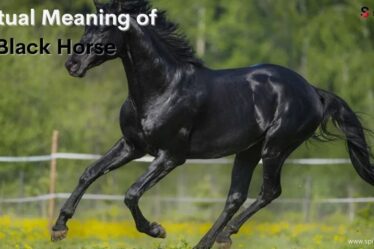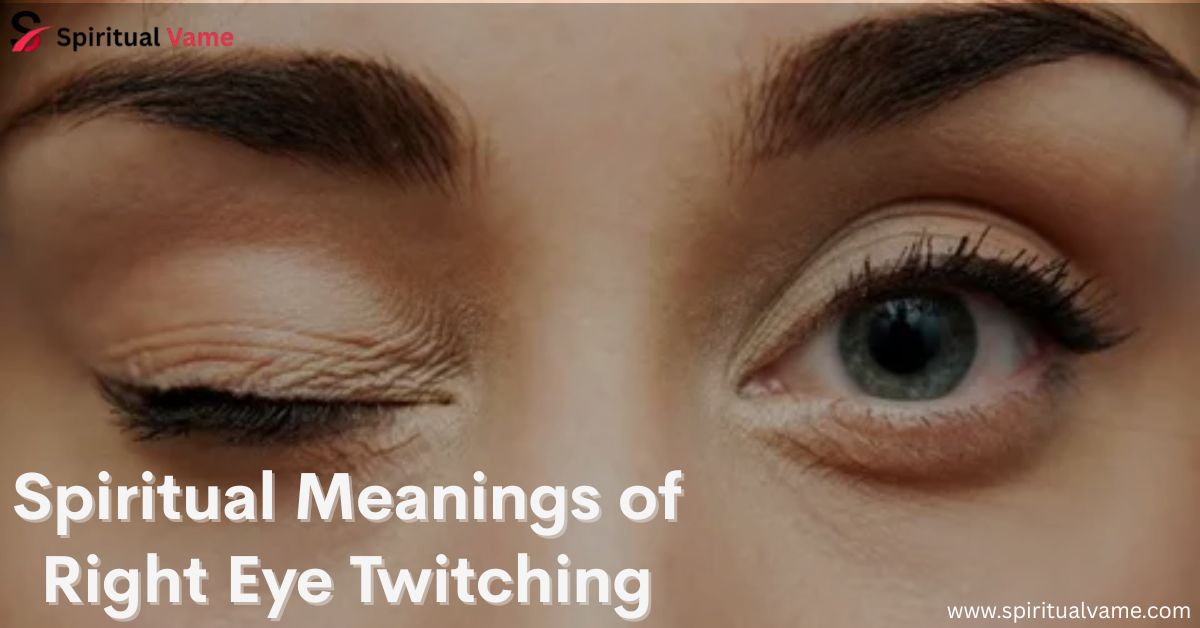
Have you ever felt your right eye twitching for no reason? It can feel strange, especially when it happens often. Many people believe it’s more than just a muscle spasm. In fact, the spiritual meaning of right eye twitching is talked about in different cultures around the world. Some say it’s a sign of good luck or a warning.
The spiritual meaning of right eye twitching can change based on where you live or even the time of day it happens. In this post, we’ll explore why your eye might twitch and what it could mean. You’ll learn both the spiritual and scientific reasons behind it.
Right Eye Twitching Superstition Meaning
Across cultures like India, China, Africa, Egypt, and the Caribbean, eye twitching isn’t just a bodily reaction—it’s a message. In China, for instance, there’s a belief that the time of day your eye twitches can predict something good or bad. This interpretation ties into traditional folklore, where each hour is linked to fortune or misfortune. In India, the superstition changes depending on your gender—if a man’s right eye twitches, it’s often seen as lucky, while for a woman, it might be the opposite. This belief flows into mythology and astrology, where the eyelid’s movement is a signal from a higher power, possibly even destiny itself.
In Africa, especially in countries like Nigeria and Cameroon, right eye twitching is tied to spiritual posts, passed down through oral tradition. Some communities see it as a message from the ancestors, a type of spiritual symbol or archetype meant to guide behavior. The Caribbean islands, influenced by African roots, hold similar views. Websites like LuckMoneyMyth.com, AttractYourKing.com, and Tihii.com often explore these superstition-based patterns, reflecting how these ideas have reached digital spaces. Americans reading these interpretations may find them fascinating and relatable, especially with the country’s growing interest in multicultural belief systems and alternative spirituality.
What is the right eye twitching superstition meaning
The meaning behind a right eye twitch usually revolves around either good or bad news. In most superstitions, it’s seen as an omen. For example, some say it means someone is talking about you, while others believe it could signal a change in fortune. In many cultures, it’s all about which eyelid twitches—upper or lower. This tiny detail changes the context and interpretation of the twitch completely.
In the USA, where people often blend traditional beliefs with modern life, these interpretations get more layered. You might hear someone casually say, “My right eye is twitching—must be getting some good news.” This playful expression actually comes from older cultural influences from Asia, Africa, and Europe. Publications like Parade and TYCHR help keep these stories alive by explaining how these rituals and symbols remain part of modern life.
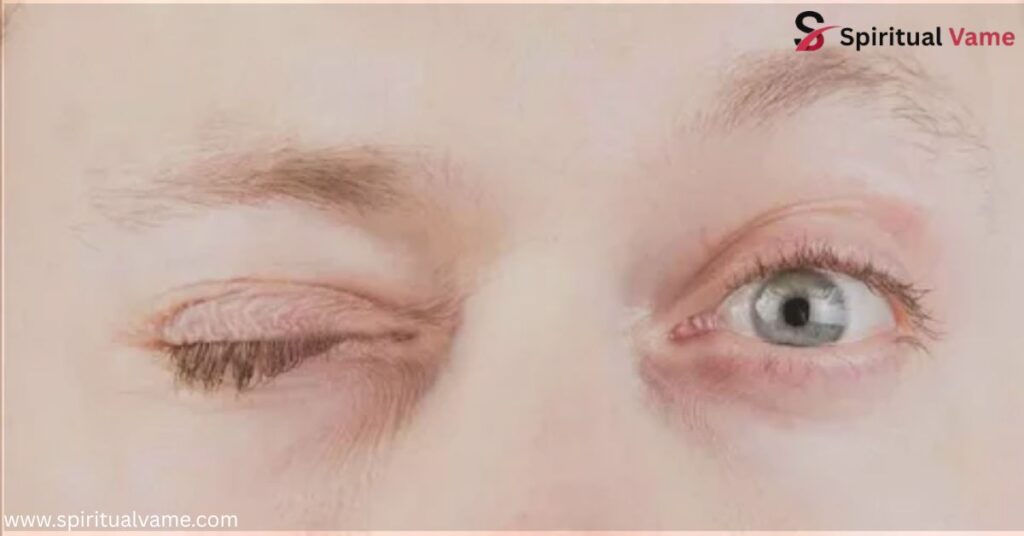
The history and origin of the superstition
The superstition around right eye twitching has deep roots in ancient civilizations. In Egypt, priests believed the eyes were windows to the soul, and any sudden movement meant a spiritual disturbance. India’s Vedic scriptures mention muscle contractions as signs of upcoming events, based on the body’s energy channels. In China, old almanacs list the hours (1, 3, 5, 7, 9, 11, etc.) and link each time slot to different predictions when the eye twitches. This idea of using numbers and patterns continues today, especially in communities that follow astrology or traditional medicine.
The belief spread across continents with migration, trade, and cultural exchange. As people moved from Asia and Africa to the Americas, they carried their stories with them. Over time, those stories became part of global cultural consciousness, showing up in spiritual blogs and wellness sites across the internet. Modern platforms like Healthwire, Oladoc, and Spiritual Posts now offer both traditional and updated takes on these ancient ideas.
How the superstition is interpreted in different cultures
Each culture adds its own twist to the meaning of a twitching eye. In Hawaii, where spirituality is tied closely to nature, a twitching eye might be seen as a message from the land or spirits. Nepalese people often connect it to upcoming visits from loved ones. Meanwhile, in parts of Europe, some believe it’s linked to emotional energy or tension in relationships. These interpretations don’t just stem from old stories—they’re shaped by tradition, bias, cognition, and how different societies understand cause and effect.
In America, where people from many backgrounds live together, these beliefs mix and evolve. A person might grow up hearing their grandmother say twitching means a surprise is coming, while their doctor calls it a nerve spasm from too much caffeine. These overlapping ideas create a unique space where science and mythology coexist. It’s this combination that makes the spiritual meaning of right eye twitching so intriguing to modern audiences.
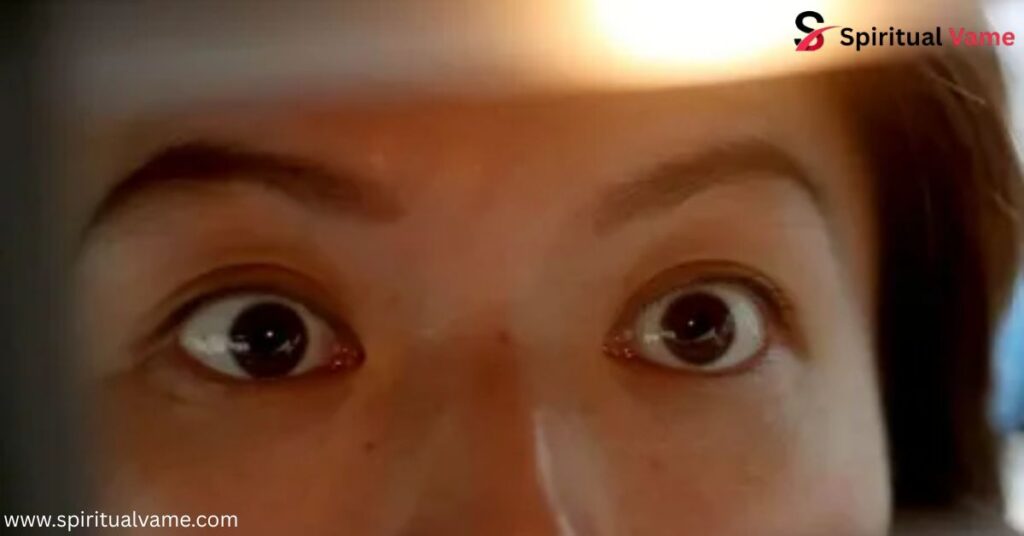
Scientific explanations for why eyes twitch
From a medical perspective, a twitching eye is usually caused by muscle spasms, stress, fatigue, anxiety, or too much caffeine. These involuntary contractions affect the eyelid muscles, usually the lower lid. It might feel like a flutter or pulsing that comes and goes. Experts say it’s often harmless, though it can become annoying if it happens repeatedly or lasts for days.
According to doctors featured on Oladoc and Healthwire, eye twitching can also result from dry eyes, lack of sleep, or irritation from screen time. These explanations use terms like inference, perception, and neurological response, tying into how our bodies react to daily stressors. In short, while the spiritual interpretation offers meaning, science often points to lifestyle and health.
| Scientific Cause | Explanation |
| Stress and Anxiety | Mental pressure can trigger muscle spasms. |
| Fatigue and Lack of Sleep | Tired muscles around the eyes may twitch. |
| Caffeine or Alcohol Intake | Overstimulation of muscles causes twitching. |
| Eye Strain | Too much screen time can tire the eye muscles. |
| Nutritional Imbalances | Lack of magnesium or potassium can affect muscles. |
| Allergies | Eye irritation can lead to frequent twitching. |
Why do people believe in superstitions
Belief in superstitions is deeply human. It comes from our desire to find meaning, especially when life feels random or stressful. Our brains look for patterns, and when something like an eye twitch happens, we naturally ask, “What does this mean?” Cultures around the world, including in America, have passed down traditions and folklore to help make sense of the unknown.
Psychologists say we’re wired to seek context, and that helps explain why even highly logical people may still check their horoscope or listen when someone mentions an old wives’ tale. In the case of right eye twitching, the symbol becomes a way to feel connected—to the past, to unseen forces, or to destiny itself. Whether it’s reading a blog on Attract Your King or asking a friend, the curiosity around this small flutter taps into something deeply human.
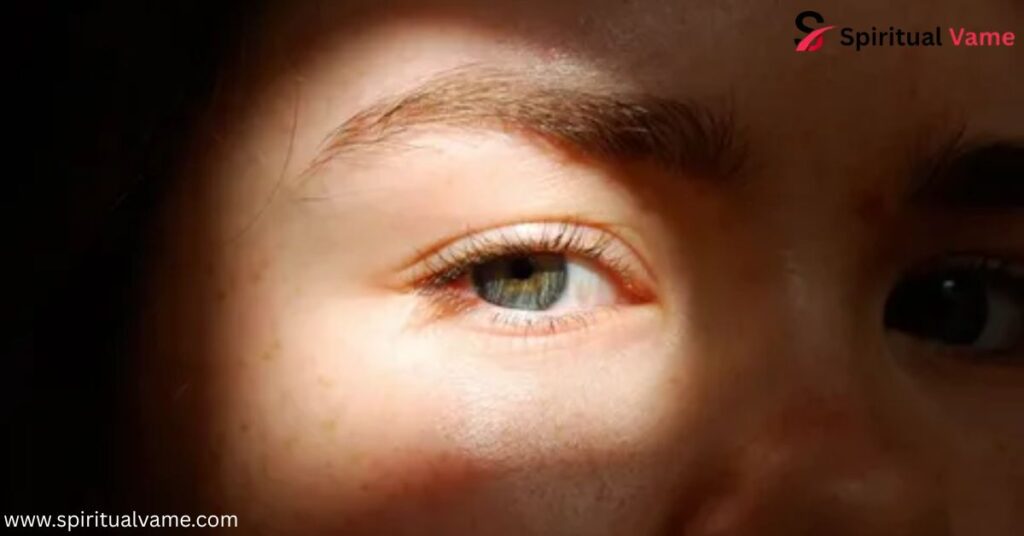
Conclusion
The spiritual meaning of right eye twitching blends ancient beliefs, cultural symbols, and modern curiosity. Whether you’re drawn to spirituality, interested in folklore, or just wondering why your eye keeps twitching at 3 PM, there’s a whole world of interpretation out there.
For some, it’s a sign of luck or fate; for others, just a bit too much coffee or not enough sleep. But no matter how you see it, this tiny flutter continues to spark wonder across the world—especially in places like America, where diverse ideas come together. So next time your eye twitches, pause and think. Maybe it’s more than just a muscle spasm. Maybe it’s the universe giving you a little nudge.

